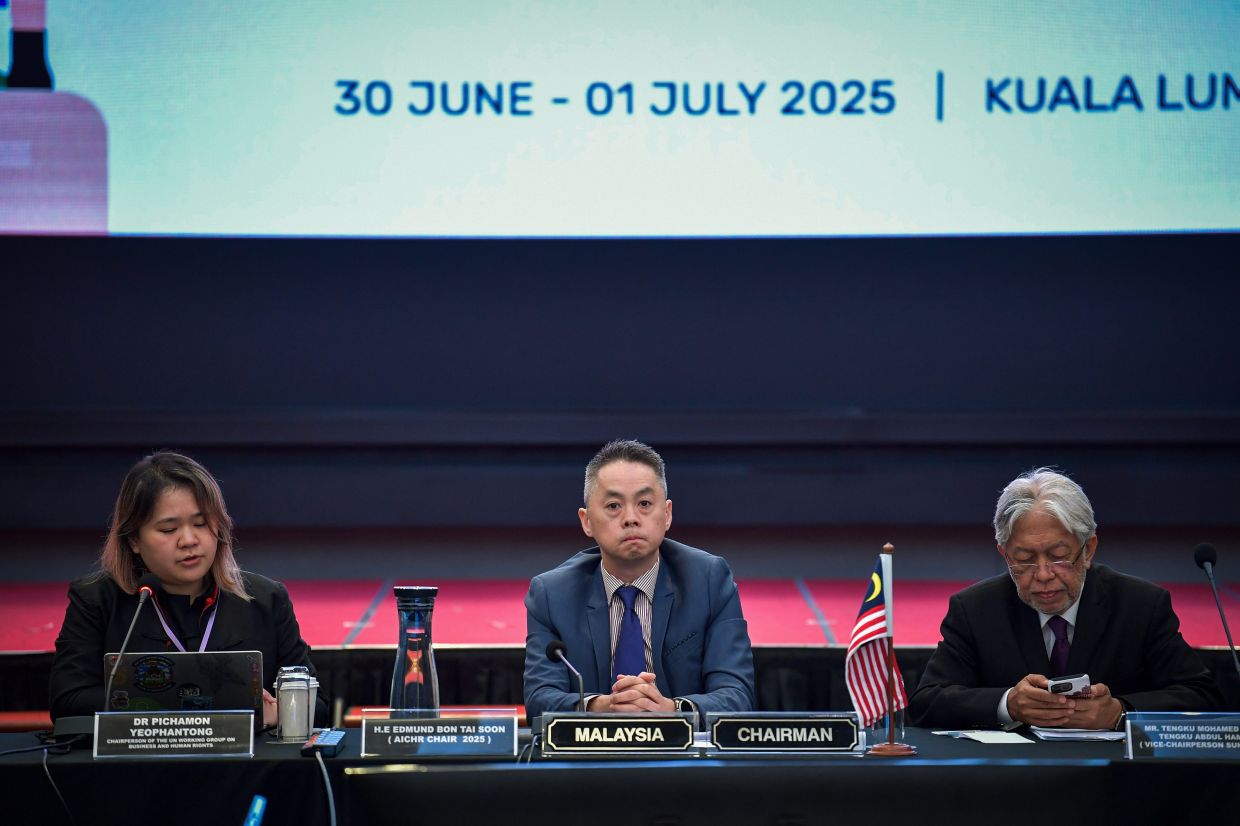KUALA LUMPUR: The Asean Intergovernmental Commission on Human Rights (AICHR) is aiming for a landmark achievement this year: the adoption of two major declarations on human rights under Malaysia’s chairmanship.
Malaysia’s Representative to AICHR, Edmund Bon Tai Soon, said one focuses on climate change, while the other centres on the right to development and peace.
“If we are able to do it this year, it would be the first time in 13 years that Asean adopts two human rights declarations in a single year,” he told reporters after the Interface Between Asean Foreign Ministers and AICHR Representatives here on Tuesday (July 8).
The proposals, which have been in negotiation for years, are expected to be tabled for adoption at the Asean Summit this October, he said.
If adopted, Bon said they would mark Asean’s first new human rights declaration since the 2012 Asean Human Rights Declaration, also spearheaded during Malaysia’s chairmanship.
The first was the Asean Declaration on the Right to a Safe, Clean, Healthy and Sustainable Environment, proposed in response to growing regional threats from climate change and displacement.
“Climate change in our region is very serious. There are a lot of displaced persons, a lot of climate refugees.
“This declaration, which Malaysia is leading, has received strong support.
“If adopted, it will give people in Asean a basis to claim their environmental rights,” he said.
Bon explained that the draft includes core principles such as public participation in environmental decisions, access to justice for pollution victims and the right to freedom of information.
“It’s not just about environmental protection. It’s about embedding human rights into how we govern environmental issues,” he added.
The second proposed declaration centres on the right to development and the right to peace, promoting inclusive and sustainable development that encompasses political, economic, social and cultural dimensions.
Bon said the right to development was a unique Asean contribution to human rights, as it is not explicitly featured in the Universal Declaration of Human Rights.
“This right is already in the Asean Human Rights Declaration, but now we’re expanding it into a full declaration.
“This will be for everyone in Asean, not just about economic growth, but about inclusive and people-centred development,” he said.
Alongside the two declarations, AICHR was also calling for the establishment of a structured framework – or “template” – for Asean’s collective response to internal and regional conflicts, such as the protracted crisis in Myanmar.
“At the moment, Asean’s responses to conflicts are very ad hoc. What we need is an institutionalised approach – a common Asean framework that guides how we respond when there’s a crisis or hotspot,” said Bon.
He said AICHR has begun a series of workshops to develop this mechanism, which would serve as a go-to guide for future Asean envoys and member states alike.
“It’s not just for Myanmar, but for any future hotspot in the region. It must be Asean-owned, not externally imposed, and built from within existing Asean mechanisms,” Bon said.
He stressed that the framework would help ensure a consistent and principled Asean approach to both intra- and inter-state issues.
Separately, Malaysia was also proposing for Nov 18 to be designated as Asean Human Rights Day, to commemorate the date the Asean Human Rights Declaration was adopted in 2012.
“Just like how Dec 10 is recognised globally as International Human Rights Day, we’re suggesting that Asean commemorates Nov 18 as our own human rights day.
“It’s been 13 years since the declaration. This is the time to affirm our commitment,” he said.
